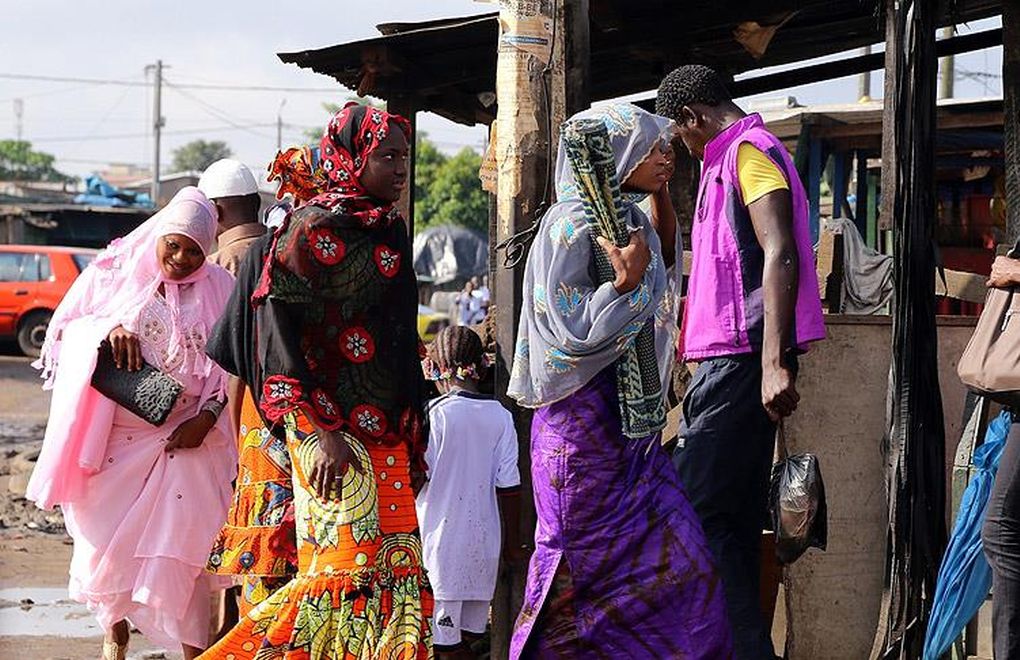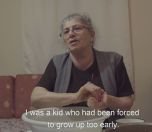* Photo: Anadolu Agency (AA)
Click to read the article in Turkish
The United Nations Population Fund (UNFPA) released its "State of World Population (SWOP) Report" for 2020 today (June 30).
Listing a series of harmful practices, such as child marriage, gender-biased sex selection, and female genital mutilation, inflicted on girls around the world, the UNFPA Turkey has indicated that "among those 3 harmful practices, child marriage is the most common in Turkey."
Within this context, the UNFPA Turkey has shared the following observations about Turkey in terms of child, early and forced marriages:
'Child marriages shorten girls' lifetime'
"Turkey is one of these countries in which child, early and forced marriage (CEFM) is still common.
"According to the UNFPA Turkey's report on the health risks and consequences of the CEFM, also released today in parallel to the SWOP report, one in five women who are currently 20-49 years old, married under 18 in Turkey. One-third of girls who got married before the age of 18 became a mother before the age of 18.
"Child marriages shorten girls' lifetime, leave them alone with life-long health problems, and significantly reduce their quality of wellness. These results include preventable deaths, chronic diseases, and disability. In pregnancies under 18, the risk of death of both the mother and her newborn baby increases between two and five times.
"UNFPA Turkey's report states that in addition to maternal and newborn deaths, child marriages cause many health problems such as miscarriage, premature and/or difficult birth, heavy bleeding, more exposure to sexually transmitted infections, and postpartum problems."
'Permanent steps and interventions are needed'
Commenting on the reports, UNFPA Turkey Representative Karl Kulessa has said, "Permanent steps and interventions to be taken within the framework of a multi-sectoral approach will play a key role in achieving the indicators regarding 'Sustainable Development Goals' and the results of the 'International Conference on Population and Development'."
"UNFPA Turkey will continue to work with the public and private sectors as well as academia and civil society in this fight against child, early and forced marriages," Kulessa has indicated further.
'4.1 million girls to be subjected to genital mutilation'
Other highlights about the world in general are as follows:
"Every year, millions of girls around the world are subjected to practices that harm them physically and emotionally, with the full knowledge and consent of their families, friends, and communities.
"At least 19 harmful practices, ranging from breast ironing to virginity testing, are considered human rights violations, according to the UNFPA report, which focuses on the three most prevalent ones: female genital mutilation, child marriage, and extreme bias against daughters in favour of sons.
"This year, an estimated 4.1 million girls will be subjected to female genital mutilation. Today, 33,000 girls under age 18 will be forced into marriages, usually to much older men.
"Also, an extreme preference for sons over daughters in some countries has fueled gender-biased sex selection or extreme neglect that leads to their death as children, resulting in 140 million 'missing females.'
'About one in five children is married in the world'
"Around the world, about one in five children is married. Today, it is estimated that there are more than 650 million women and girls, 118 million men and boys who married under age 18.
"Every year, 12 million girls under the age of 18 are married. Today, 9 out of every 10 children who married at child age are girls.
"In Eastern Europe and Central Asia, child marriage is generally illegal and on the decline overall, but is still practiced widely in parts of the region (up to 15 percent of women were married before 18; and in some communities, one in two women was married as a child).
'Pandemic threatens to reverse gains'
"While progress has been made in ending some harmful practices worldwide, the COVID-19 pandemic threatens to reverse gains.
"The pandemic may increase the risk of forced early marriage as a strategy to reduce the economic burdens in the family.
"A recent analysis revealed that if services and programmes remain shuttered for six months, an additional 13 million girls may be forced into marriage between now and 2030." (SO/AÖ/SD)





.jpg)


kkk.jpg)